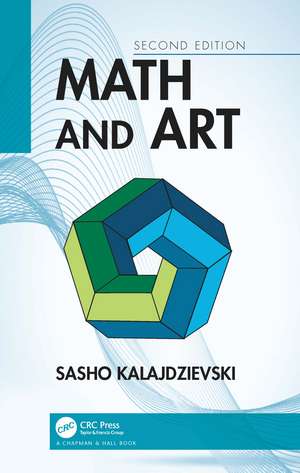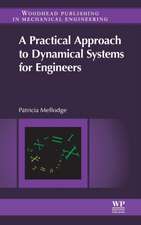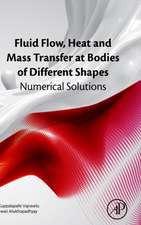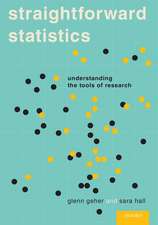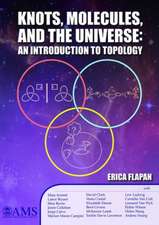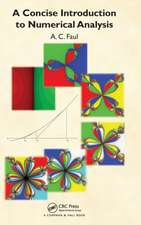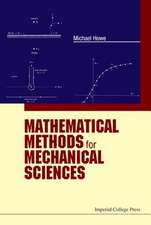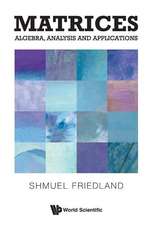Math and Art: An Introduction to Visual Mathematics
Autor Sasho Kalajdzievskien Limba Engleză Hardback – 27 sep 2021
Focusing on accessible, visually interesting, and mathematically relevant topics, the text unifies mathematics subjects through their visual and conceptual beauty. Sequentially organized according to mathematical maturity level, each chapter covers a cross section of mathematics, from fundamental Euclidean geometry, tilings, and fractals to hyperbolic geometry, platonic solids, and topology. For art students, the book stresses an understanding of the mathematical background of relatively complicated yet intriguing visual objects. For science students, it presents various elegant mathematical theories and notions.
Features
- Provides an accessible introduction to mathematics in art
- Supports the narrative with a self-contained mathematical theory, with complete proofs of the main results (including the classification theorem for similarities)
- Presents hundreds of figures, illustrations, computer-generated graphics, designs, photographs, and art reproductions, mainly presented in full color
- Includes 21 projects and approximately 280 exercises, about half of which are fully solved
- Covers Euclidean geometry, golden section, Fibonacci numbers, symmetries, tilings, similarities, fractals, cellular automata, inversion, hyperbolic geometry, perspective drawing, Platonic and Archimedean solids, and topology
- New exercises, projects and artworks
- Revised, reorganized and expanded chapters
- More use of color throughout
| Toate formatele și edițiile | Preț | Express |
|---|---|---|
| Paperback (1) | 422.21 lei 3-5 săpt. | +35.30 lei 6-10 zile |
| CRC Press – 27 sep 2021 | 422.21 lei 3-5 săpt. | +35.30 lei 6-10 zile |
| Hardback (1) | 1119.02 lei 6-8 săpt. | |
| CRC Press – 27 sep 2021 | 1119.02 lei 6-8 săpt. |
Preț: 1119.02 lei
Preț vechi: 1364.65 lei
-18% Nou
Puncte Express: 1679
Preț estimativ în valută:
214.30€ • 218.68$ • 180.30£
214.30€ • 218.68$ • 180.30£
Carte tipărită la comandă
Livrare economică 26 februarie-12 martie
Preluare comenzi: 021 569.72.76
Specificații
ISBN-13: 9780367076139
ISBN-10: 0367076136
Pagini: 398
Ilustrații: 780
Dimensiuni: 178 x 254 x 23 mm
Greutate: 0.98 kg
Ediția:Nouă
Editura: CRC Press
Colecția Chapman and Hall/CRC
ISBN-10: 0367076136
Pagini: 398
Ilustrații: 780
Dimensiuni: 178 x 254 x 23 mm
Greutate: 0.98 kg
Ediția:Nouă
Editura: CRC Press
Colecția Chapman and Hall/CRC
Cuprins
Chapter 1. Euclidean Geometry. 1.0. Introduction. 1.1. The Five Axioms of Euclidean Geometry. 1.2. Ruler and Compass Constructions. 1.3. The Golden Ratio. 1.4. Fibonacci Numbers. Chapter 2. Plane Transformations. 2.1. Plane Symmetries. 2.2.* Plane Symmetries, Vectors, and Matrices (Optional). 2.3. Groups of Symmetries Of Planar Objects. 2.4. Frieze Patterns. 2.5. Wallpaper Designs and Tilings of the Plane. 2.6. Tilings and Art. Chapter 3. Similarities, Fractals, and Cellular Automata. 3.1. Similarities and some other Planar Transformations. 3.2.* Complex Numbers (Optional). 3.3. Fractals: Definition and Some Examples. 3.4. Julia Sets. 3.5. Cellular Automata. Chapter 4. Hyperbolic Geometry. 4.1. Non-Euclidean Geometries: Background and Some History. 4.2. Inversion. 4.3. Hyperbolic Geometry. 4.4. Some Basic Constructions in the Poincaré Model. 4.5. Tilings of the Hyperbolic Plane. Chapter 5. Perspective. 5.1. Perspective: A brief overview of the Evolution of the rules of perspective. 5.2. Perspective Drawing and Constructions of Some Two-Dimensional (Planar) Objects. 5.3. Perspective Images of Three-Dimensional Objects. 5.4.* Mathematics of Perspective Drawing: A Brief Overview (Optional). Chapter 6. Some Three-Dimensional Objects. 6.1. Regular and Other Polyhedra. 6.2. Sphere, Cylinder, Cone, and Conic Sections. 6.3. Geometry, Tilings, Fractals, and Cellular Automata in Three Dimensions. Chapter 7. Topology. 7.1. Homotopy of Spaces: An Informal Introduction. 7.2. Two-Manifolds and The Euler Characteristic. 7.3. Non-Orientable Two-Manifolds and Three-Manifolds. Appendix: Classification Theorem for Similarities. Solutions.
Notă biografică
Sasho Kalajdzievski is the professor in the Mathematics department at University of Manitoba
Recenzii
"A beautiful book that brings out a wide range of mathematics, ancient to modern, with rich and often unexpected connections to the visual arts."
– Catherine A. Gorini, Maharishi International University
"Kalajdzievski takes us on a fascinating journey through the most visual subjects in mathematics. This book has the rare quality of not only organizing topics in a sequence that reveals how geometric concepts build upon one another, but also presenting each topic in a compact and self-contained manner for readers who prefer to browse for different entry points into the text. Although verbal explanations and mathematical formulae abound here, it is the colorful diagrams and photographs that capture the attention and enchant the eye. "
– James Mai, Professor of Art, Illinois State University
"The book presents mathematical and geometrical topics which can be expressed as the artistic pieces and serve to inspiring the artists to explore visual beauty and power of mathematics. In comparison with the first edition (of 2008), this book is noticeably extended to 280 exercises (from 190 originally) with solutions given to a half of them, 740 figures and artworks (from 556 previously), and 21 projects suggested for students.
[. . . ] The book contains various illustrations and computer-generated graphics, photographs and art reproductions almost in each page, revealing an astonishing interaction of mathematics and artistic findings in human civilization and culture. [. . . ] The book can be useful to instructors and students, and interesting to any readers wishing to extend their knowledge and understanding of the esthetics and science of the visual math and mathematical art."
– Technometrics
"There are many books about mathematics and art; this one distinguishes itself as an “unorthodox geometry textbook,” with exercises and fun art projects. The book is based on 20 years of offering a course to more than 10,000 students. It stops short of covering some of the mathematics (groups are mentioned but not defined), though one theorem (classification of similarities) is proved in an appendix. Topics are Euclidean geometry, transformations of the plane, similarities and fractals, hyperbolic geometry, perspective, three-dimensional objects, and topology. The book averages two figures per page, with many utterly beautiful in color. You might be surprised at the sophisticated mathematical content of some crop circles (no doubt made by aliens!), and amazed by some of the illustrations of artworks."
– Mathematics Magazine, MAA
Praise for the First Edition
"This delightful book grew out of set of teaching notes for an interdisciplinary course called Math in Art that was co-taught by a mathematician and an artist or architect. … The mathematical ideas are presented visually in a way that seems quite natural, and it engages the reader through explorations with lots of hands-on exercises. The mathematical presentation is solid, and the choice of topics puts the focus on the visual presentation of mathematical concepts. The illustrations are beautiful! … This text is very readable. The mathematics is accessible to those with little mathematical background, and yet the presentation is still engaging for those with more background."
—MAA Reviews, March 2009
"All in all, this work offers an excellent account of art inspired by mathematics and art generated by mathematics, and it should interest readers in both fields. Summing Up: Highly Recommended."
– R.M. Davis, emeritus, Albion College, in Choice: Current Review for Academic Libraries, February 2009, Vol. 46, No. 6
– Catherine A. Gorini, Maharishi International University
"Kalajdzievski takes us on a fascinating journey through the most visual subjects in mathematics. This book has the rare quality of not only organizing topics in a sequence that reveals how geometric concepts build upon one another, but also presenting each topic in a compact and self-contained manner for readers who prefer to browse for different entry points into the text. Although verbal explanations and mathematical formulae abound here, it is the colorful diagrams and photographs that capture the attention and enchant the eye. "
– James Mai, Professor of Art, Illinois State University
"The book presents mathematical and geometrical topics which can be expressed as the artistic pieces and serve to inspiring the artists to explore visual beauty and power of mathematics. In comparison with the first edition (of 2008), this book is noticeably extended to 280 exercises (from 190 originally) with solutions given to a half of them, 740 figures and artworks (from 556 previously), and 21 projects suggested for students.
[. . . ] The book contains various illustrations and computer-generated graphics, photographs and art reproductions almost in each page, revealing an astonishing interaction of mathematics and artistic findings in human civilization and culture. [. . . ] The book can be useful to instructors and students, and interesting to any readers wishing to extend their knowledge and understanding of the esthetics and science of the visual math and mathematical art."
– Technometrics
"There are many books about mathematics and art; this one distinguishes itself as an “unorthodox geometry textbook,” with exercises and fun art projects. The book is based on 20 years of offering a course to more than 10,000 students. It stops short of covering some of the mathematics (groups are mentioned but not defined), though one theorem (classification of similarities) is proved in an appendix. Topics are Euclidean geometry, transformations of the plane, similarities and fractals, hyperbolic geometry, perspective, three-dimensional objects, and topology. The book averages two figures per page, with many utterly beautiful in color. You might be surprised at the sophisticated mathematical content of some crop circles (no doubt made by aliens!), and amazed by some of the illustrations of artworks."
– Mathematics Magazine, MAA
Praise for the First Edition
"This delightful book grew out of set of teaching notes for an interdisciplinary course called Math in Art that was co-taught by a mathematician and an artist or architect. … The mathematical ideas are presented visually in a way that seems quite natural, and it engages the reader through explorations with lots of hands-on exercises. The mathematical presentation is solid, and the choice of topics puts the focus on the visual presentation of mathematical concepts. The illustrations are beautiful! … This text is very readable. The mathematics is accessible to those with little mathematical background, and yet the presentation is still engaging for those with more background."
—MAA Reviews, March 2009
"All in all, this work offers an excellent account of art inspired by mathematics and art generated by mathematics, and it should interest readers in both fields. Summing Up: Highly Recommended."
– R.M. Davis, emeritus, Albion College, in Choice: Current Review for Academic Libraries, February 2009, Vol. 46, No. 6
Descriere
This introduction explores the potential of mathematics to generate visually appealing objects and reveals some of the beauty of mathematics. With color figures and animations on an accompanying downloadable resources, plus a 16-page full-color insert, it includes numerous illustrations, computer-generated graphics, photographs, and art reproductio
